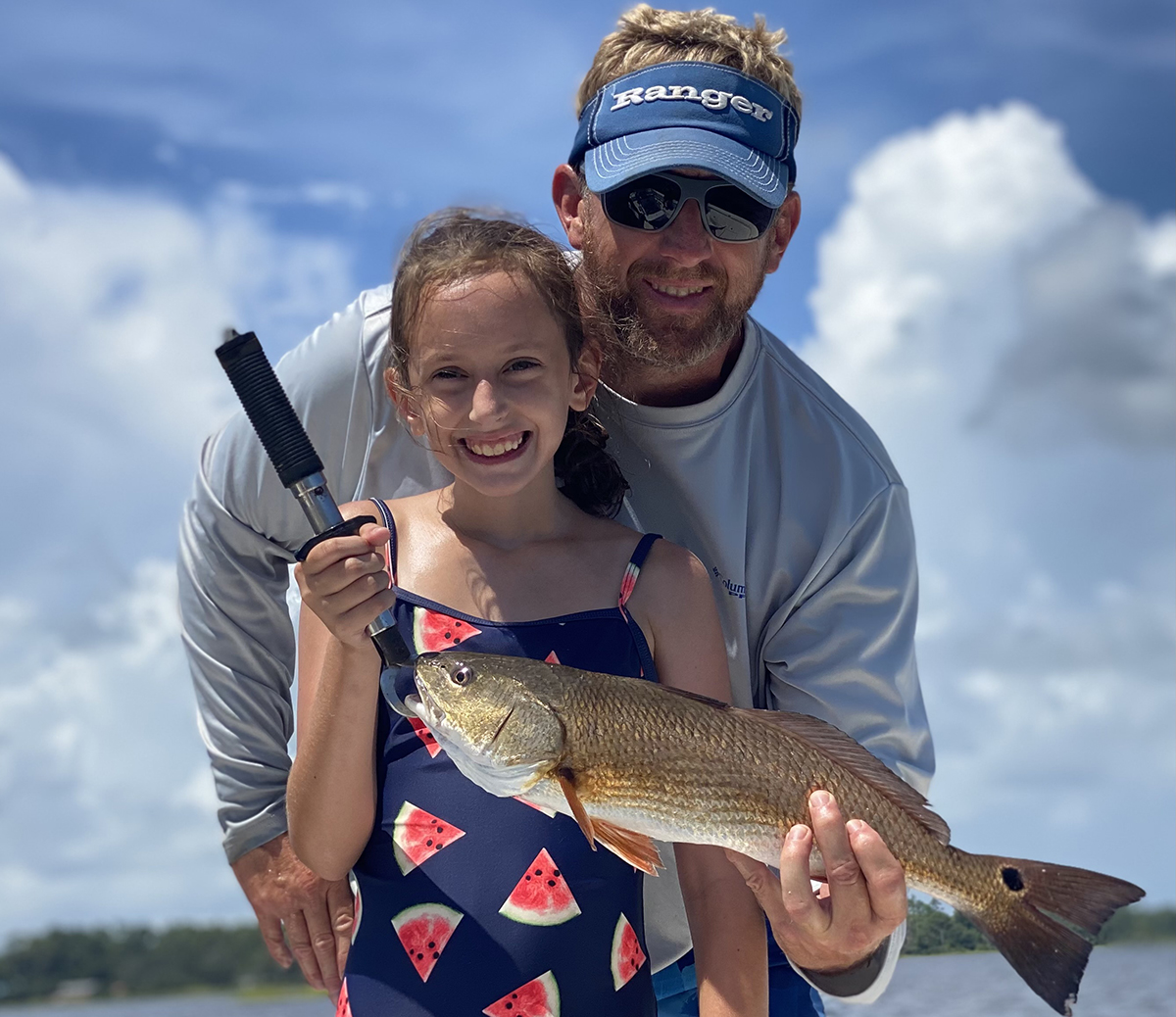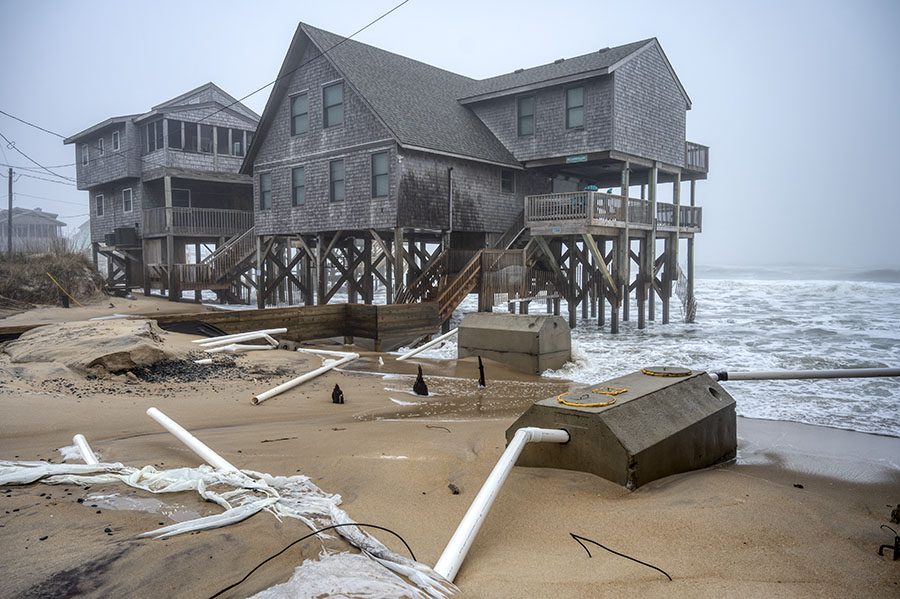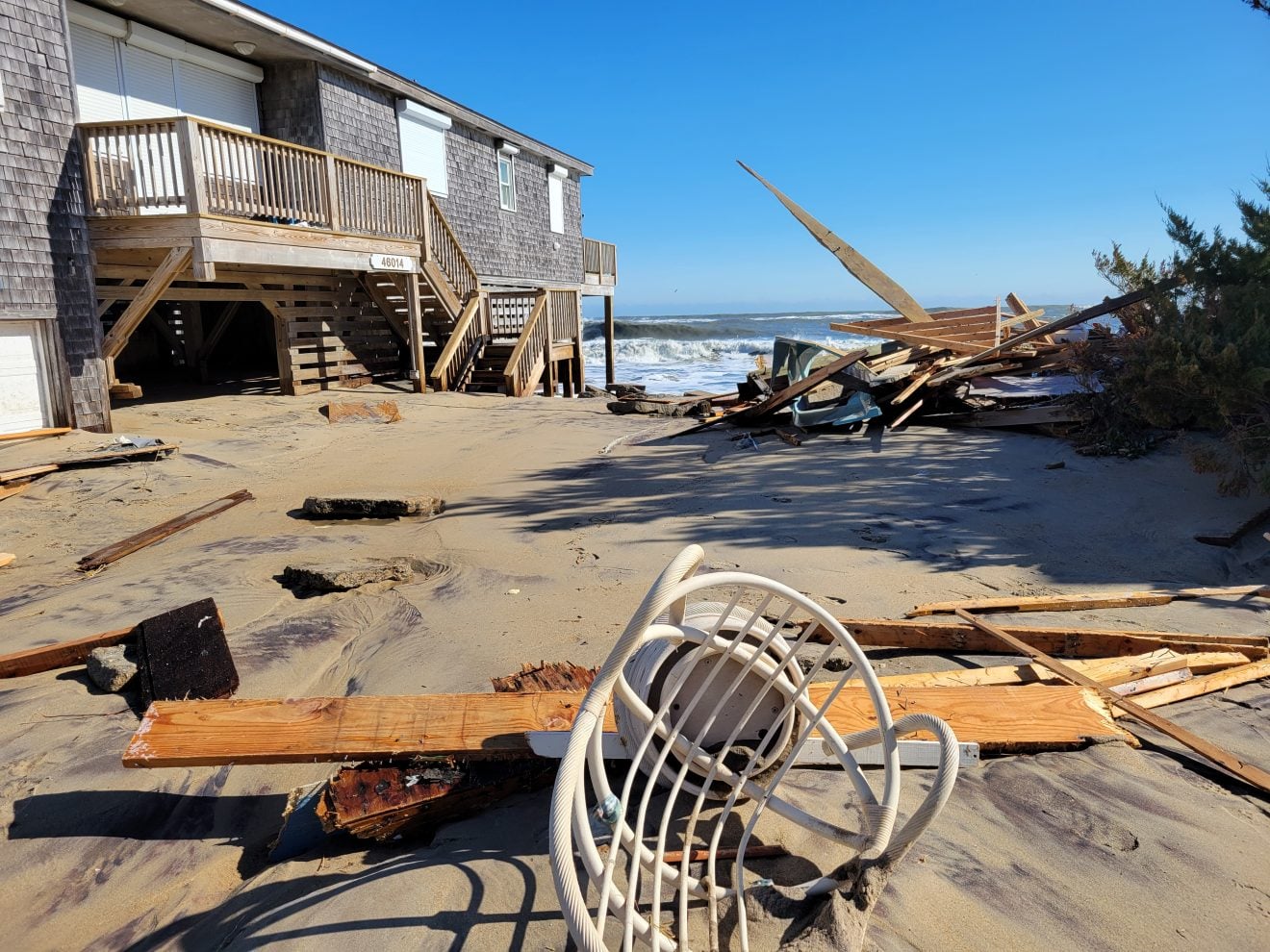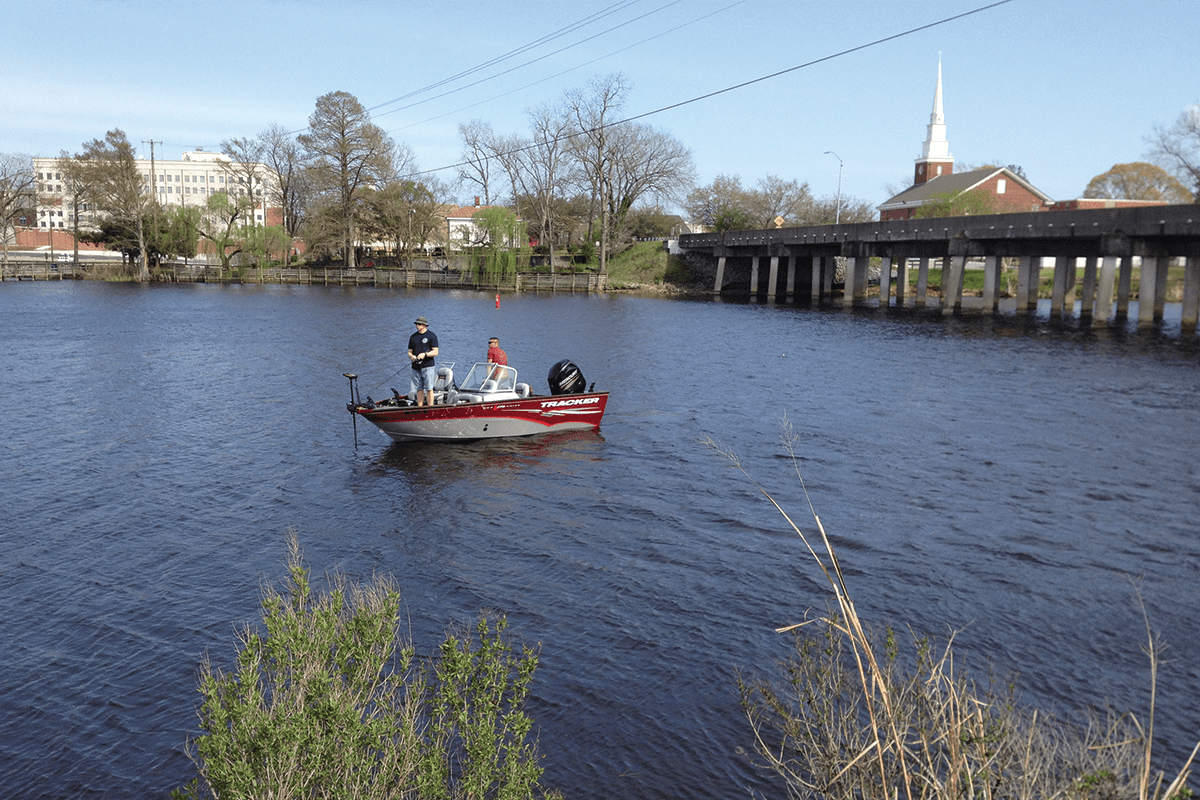
You’re thinking of trying to catch a big flounder without leaving the inlet. You’ve got kids who can’t go in the ocean, but you still want a big one. For fishing guide Capt. Rick Patterson of Emerald Isle, fishing is all about family.
Patterson comes by his knowledge through a lifetime of angling. A Burlington native, he started out as a young man fishing for bass with his father, Richard Patterson who died in 2016. He credits his father for getting him into fishing.
Supporter Spotlight
“My dad bought a bass boat back in the early ’90s and we really got into it. We fished most of the lakes of central North Carolina,” he said.
This led Patterson to start fishing in bass tournaments across the state. Like many, he found that traipsing around from lake to lake for tournaments is not really viable for more than a select few. So, he adapted his love of fishing and his expertise learned from competitive bass fishing and directed it towards saltwater fishing.
“We had been coming down to the coast as long as I can remember, and I got the crazy idea of becoming an inshore fishing guide. After Tara and I got married we moved to Emerald Isle in 2001 and I started guiding in ’03,” Patterson said.
Patterson soon made an impact in the area. He immediately started making a name for himself by catching huge flounder, and his enthusiasm was contagious.
“I really enjoy guiding people. Always fun watching people catch a big saltwater fish for the first time,” he said.
Supporter Spotlight
Patterson said his true passion is his family, and his wife Tara and daughter Katie, 12, have been known to get out there and catch a big fish from time to time themselves. A few years back it was a common sight to see Patterson and his father plugging for red drum and trout in any of the Carteret County waterways. He truly enjoys seeing kids on the water.
“To get kids excited about fishing, you have to target something they can catch. It has to be fun.”
This means that plugging for trout no matter what may not bet the best thing and simply rigging up a light rod for croakers and pinfish might be a better option.
“Most kids, especially younger ones, have a short attention span. Many guys make the mistake of keeping them out too long and fishing for what they want, instead of something the kids can catch,” Patterson said, adding what could be a primer on parenting in any situation: “Patience and making it fun, are the two most important things.”
If you ever spend a day on the water with him, you will quickly see Patterson demonstrate his wealth of information and knowledge. He said that part of the reason people hire inshore guides is to learn and take things that the guide shows them and apply it for themselves the next time they go.
“The best advice I give is do research and spend as much time on the water as they can,” he said. “Most people have no idea of the days and days that other guides and I have spent on the water over the years figuring out what will work and when.”
Tiger Woods didn’t get to be a great golfer by winning the Masters Tournament, he won the Masters because he had already done the work to become a great golfer.
It’s no different for fishing, Patterson said. “You have to put your time in and learn about everything from the tides to fish movement, bait movement, and a million other things.”
Patterson is excited about fishing and generally helpful to anyone who seeking advice or tips. He’s given numerous talks at fishing gatherings, passing along his decades of experience. Among his words of advice, “In general, the most important thing to prepare for a good day of fishing is to make sure the boat and equipment are in good working order and to make sure the bait is good.”
He added that having the right bait is the most important thing to catching fish, whether natural baits or artificial lures. Matching those to the fish and the conditions makes a huge difference. Next is knowing your habitat and the conditions.
“You have to know what the tide is doing.”
In marshes and creeks where Patterson spends most of his time, “Some places hold fish at certain stages of the tide and then not at others.” If a place has good tide and bait and you don’t catch anything, “Come back and fish it again at a different tidal stage.” That just come from time on the water. New anglers in saltwater don’t always understand that. “Once you figure out the tides, you will catch fish.”
His favorite ways to fish involve artificial lures. He uses live bait much of the time when fishing with clients.
“Shrimp and mud minnows under popping corks, but if you can get live shrimp, that is the best. Shrimp will catch everything that swims in the marshes,” he advised. But when it comes to catching fish for himself, he loves to fish a topwater plug for reds and trout. He also has a propensity to use the plastic jig tails that have the natural fish flavoring in them. “Jigs with Gulp will catch all three when fished in the right spots.”
Looking ahead, Patterson plans on staying right where he is.
“I hope to still be guiding and I don’t plan on letting up anytime soon,” he said. “As long as I’m healthy and able to get in and out of the boat, I’ll be chasing redfish, trout, and flounder.”







